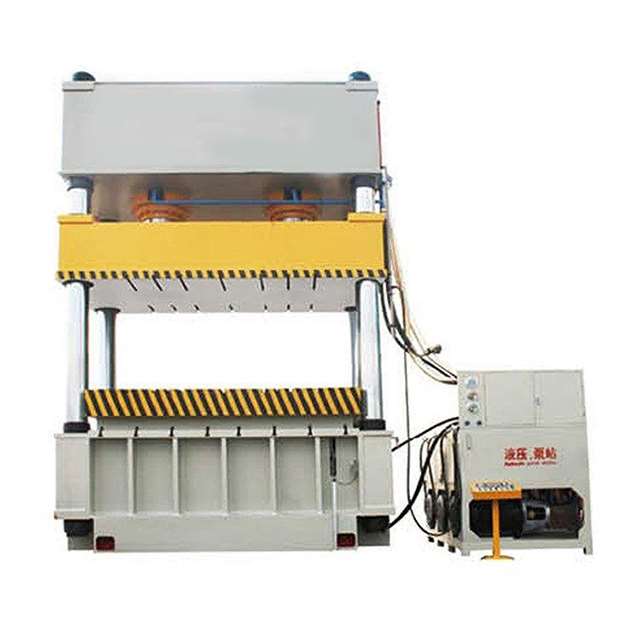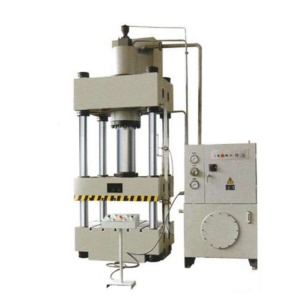Four-column hydraulic presses play a critical role in metal forming, plastic products, powder metallurgy, and other industries. While their hydraulic systems provide powerful performance, their precision makes them vulnerable to malfunctions. Operators must identify common faults and take preventive measures to ensure safety and optimize equipment use. By mastering these steps, operators can reduce downtime, boost operational efficiency, and enhance press performance. Proper maintenance and operation ensure consistent, stable production.
Types and Principles of Four-Column Hydraulic Presses
Four-column hydraulic presses come in various models, including general-purpose presses like the Y32 series, special-purpose presses like the Y32-1200B and Y32-1800B, and two-beam presses like the YW31-100T. Despite their differences, all these presses operate on the same principle. The hydraulic system transmits power through hydrostatic pressure, enabling tasks such as metal forming, pressing, and stamping. This shared design principle allows presses to adapt to multiple applications in metalworking, heavy manufacturing, and beyond. Although these models vary in construction, they all follow the same core operation, making it easy to switch between machine types in production settings.
Common Failures and Their Causes
Most hydraulic system failures in four-column hydraulic presses result from contamination, overheating, and air ingress. These issues often occur together, where one problem leads to others. For example, abnormal pressure frequently occurs. In one case, the YC32-315 press only reached 5MPa instead of the expected 32MPa, which caused the main cylinder to lose pressure during operation. Malfunctions like slider crawling, downward pressure, and slippage often stem from issues such as electrical wiring problems, insufficient oil in the tank, or air trapped in the hydraulic system. Additionally, speed abnormalities, such as slow stroke speeds or gradual pressure build-up, usually occur due to insufficient pump flow, worn-out pumps, or oil leaks. These issues emphasize the importance of regular maintenance and careful monitoring to prevent costly breakdowns.

Preventing Hydraulic Press Failures
Operators can prevent most faults by following proper operation and maintenance procedures. They should undergo thorough training to fully understand the press’s performance and operating techniques. Before starting the press, operators must conduct essential pre-operation checks, such as cleaning debris from the mold, checking oil levels, listening for unusual sounds from the pump, and inspecting the hydraulic system for leaks. Operators should never exceed 90% of the press’s rated pressure when adjusting working pressure. After testing a single workpiece, operators should ensure the press operates within safe parameters before proceeding with production. These simple checks can help operators avoid malfunctions and ensure smooth, efficient operations.
Hydraulic Press Maintenance and Care
Regular maintenance is crucial to reducing failure rates and keeping the hydraulic press functional over the long term. Managing hydraulic oil is a key component of maintenance. Operators should use the recommended oils, such as L-HL32/GB1118-89 or N46/GB3141, based on the temperature range. They must filter the oil before adding it to the tank and change the oil annually. The first oil change should take place within three months of installation to maintain optimal press performance. Regular lubrication is equally important; operators must lubricate the slide block frequently and ensure the columns remain clean. The pressure gauge should be calibrated every six months, and operators must monitor eccentricity under concentrated load to prevent damage to the columns. If the machine will be out of service for a long period, operators must clean all surfaces thoroughly and treat them with rust-preventive oil to protect against corrosion.
Investing in operator training and building a reliable maintenance system is much more cost-effective than dealing with the consequences of equipment failure. By ensuring operators fully understand the hydraulic system’s workings and follow proper procedures, the four-column hydraulic press will operate smoothly, delivering consistent results and ensuring a stable production process.



